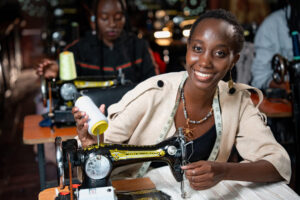Photography: Capturing Moments and Telling Stories Through the Lens
Photography is the art and science of capturing light to create images that tell stories, evoke emotions, and preserve memories. It is a versatile and powerful medium used in art, advertising, journalism, fashion, events, and personal expression.
Whether you’re an aspiring photographer or a seasoned professional, mastering photography fundamentals will help you create impactful and visually compelling images.
What Is Photography?
Photography involves using a camera to record light on a sensor or film, producing still images. It encompasses a wide range of styles and techniques, from candid snapshots to highly stylized compositions.
Key Elements of Photography
- Composition: The arrangement of visual elements within the frame to create balance and interest.
- Lighting: Controlling natural or artificial light to enhance mood and detail.
- Focus and Depth of Field: Directing viewer attention by managing sharpness and background blur.
- Exposure: Balancing shutter speed, aperture, and ISO to achieve the correct brightness.
- Color and Contrast: Using hues and tonal differences to create mood and emphasis.
Types of Photography
- Portrait Photography: Capturing people’s expressions and personalities.
- Landscape Photography: Showcasing natural or urban environments.
- Fashion Photography: Highlighting clothing and style for marketing and editorial purposes.
- Event Photography: Documenting occasions like weddings, concerts, and conferences.
- Product Photography: Creating attractive images of products for advertising and e-commerce.
- Street Photography: Candid shots capturing everyday life and culture.
Essential Photography Equipment
- Cameras: DSLRs, mirrorless cameras, and smartphones.
- Lenses: Wide-angle, telephoto, prime, and zoom lenses for different effects.
- Tripods: For stability and long exposure shots.
- Lighting Gear: Reflectors, softboxes, and flash units.
- Editing Software: Adobe Lightroom, Photoshop, and other post-processing tools.
The Photography Process
- Planning: Conceptualizing the shoot, selecting locations, and preparing gear.
- Shooting: Adjusting settings and composing shots on location or in the studio.
- Editing: Enhancing images through cropping, color correction, retouching, and effects.
- Sharing: Publishing photos online, in print, or as part of portfolios and exhibitions.
Career Opportunities in Photography
- Professional photographer (weddings, portraits, fashion)
- Photojournalist or documentary photographer
- Commercial and advertising photographer
- Stock photography contributor
- Photography instructor or workshop leader
Benefits of Learning Photography
✅ Enhances creativity and visual storytelling
✅ Provides opportunities for self-expression and professional growth
✅ Supports marketing and branding through compelling imagery
✅ Enables documentation and preservation of important moments
✅ Opens paths to diverse photography careers and entrepreneurial ventures
Final Thoughts: Seeing the World Through Your Lens
Photography is a unique blend of technical skill and artistic vision. By understanding the fundamentals and continuously practicing, you can capture powerful images that inspire, inform, and connect with viewers.



